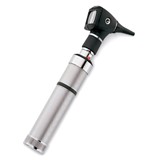Some women choose to terminate their pregnancy because their baby has this condition.
The researchers, led by Prof Lolkje de Jong-van den Berg from the University of Groningen in the Netherlands, carried out a review of all published studies to identify specific major malformations linked with carbamazepine use in the first three months of pregnancy.
Of the five identified indications in the literature, spina bifida was the only specific major congenital malformation significantly associated with exposure to carbamazepine monotherapy (spina bifida was 2.6 times more likely in infants of women who had taken carbamazepine compared with no antiepileptic drug, but the risk was smaller for carbamazepine than for valproic acid).
The authors did not conclude that carbamazepine is associated with other major malformations and say it is less risky than another frequently used antiepileptic drug, valproic acid.
They also stress that “although most antiepileptic drugs taken during pregnancy significantly increase the risk for one or more specific congenital malformations, the occurrence of these malformations is nevertheless rare … most exposed pregnancies result in a baby without malformation.” For carbamazepine taken in the first three months of pregnancy the overall risk of a major malformation was 3.3%.
Carbamazepine is one of the most commonly used anti-epilepsy drugs in Europe among women of reproductive age, says the paper.
The material was derived from EUROCAT – a database containing information from 19 registers of pregnancy outcomes with major congenital malformations in Europe from 1995 to 2005. The data relates to almost four million European births, of which over 98,000 involved a major malformation.
The authors say that their earlier study on valproic acid (published in the New England Journal of Medicine in 2010) concludes that women on valproic acid are six times more likely to have a pregnancy outcome with spina bifida and seven times more likely to have an outcome with hypospadias (a condition where a boy's urinary opening develops in the wrong part of the penis or in the scrotum) compared with women using other antiepileptic drug use. The research team therefore agrees with the recent recommendation from the American Academy of Neurology that women should avoid valproic acid in pregnancy if possible.
The authors conclude that although the overall risk of birth defects is low for women taking antiepileptic drugs, “the best option regarding anti epileptic drug treatment can be chosen only on an individual basis by the woman and neurologist before pregnancy, weighing the benefits of epilepsy control against the risk of teratogenicity.”
In an accompanying editorial, Irena Nulman, Associate Prof of Paediatrics at the University of Toronto, says: "Of all the anticonvulsant drugs, "carbamazepine is associated with the lowest rate of morphological defects ... and should therefore be considered the drug of choice in pregnancy." She points out that, for many pregnant women, dicontinuing antiseizure drugs is not an option and that women should plan their pregnancy, receive evidence based prenatal counselling, and be given the safest antiepileptic drug.








